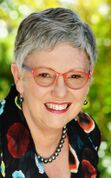This short post builds on the previous one focused on Intentional Teaching.
When parents teach children to do something – they expect that the child will quickly start to build increasing control of the new process.
Think about the parent teaching a child to do up their buttons. They do not start the teaching process too soon – initially they do their buttons for them. But when they feel that the child has the necessary dexterity – they help them to do up their buttons – perhaps starting with their pyjamas, or a garment that is soft and has larger buttons.
Then, when they feel the child is ready, perhaps when they see the child trying to do their buttons up, they explicitly teach them how to. But let’s start from the beginning of the process.
Parents do not teach children to do their buttons up by simple modelling or demonstrating the process and expecting the child to learn by watching, although seeing others in the home do up their own buttons, provides incentive and an idea of the process. Older siblings may also provide extra incentive – wanting to be like an older brother or sister.
Parents may start by helping their child to manipulate the button and button hole – and gradually step back from the process, doing a little less each time.
They may provide ongoing help with smaller or difficult buttons or help by starting them off – but then they will leave this as a task the child can now do.
They may allow for approximations early on – ignoring misalignment of buttons for a while but eventually they will require correct orientation.
The aim of teaching children how to do their buttons – is for the child to take responsibility for this process independently. The little one in the picture below is very proud of her ability to do up her own buttons.

The real skill of teaching comes from knowing the processes you are teaching and knowing your students very well.
Parents know their children better than anyone else – which is why they know when they can expect shifts in learning – like doing up their own buttons. They also know how different children can be, and don’t expect all their children to learn in the same way, or at the same pace.
Parents instinctively know that children don’t go from ‘not knowing’ something to ‘knowing it in it’s entirety’ in one lesson. They know there will be problems with buttons for some time – particularly with new, stiff garments or small buttons. Parents also know that it doesn’t help to teach a child how to do their buttons up and then continue to do the buttons up for them. That can mean being patient for a while, allowing the child the time to build an efficient system for doing up their buttons.
Of course it is much harder in the classroom – to know 25 children. A teacher can never know a child in the way that a parent can. However, we can follow similar processes for teaching something new.
